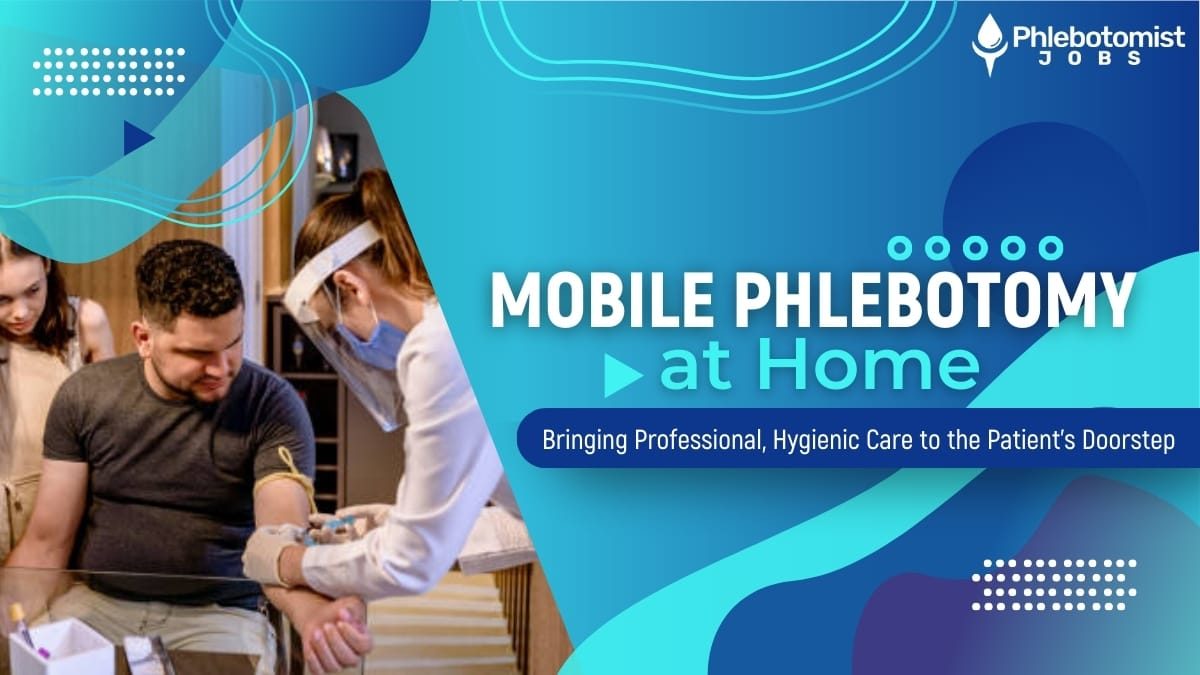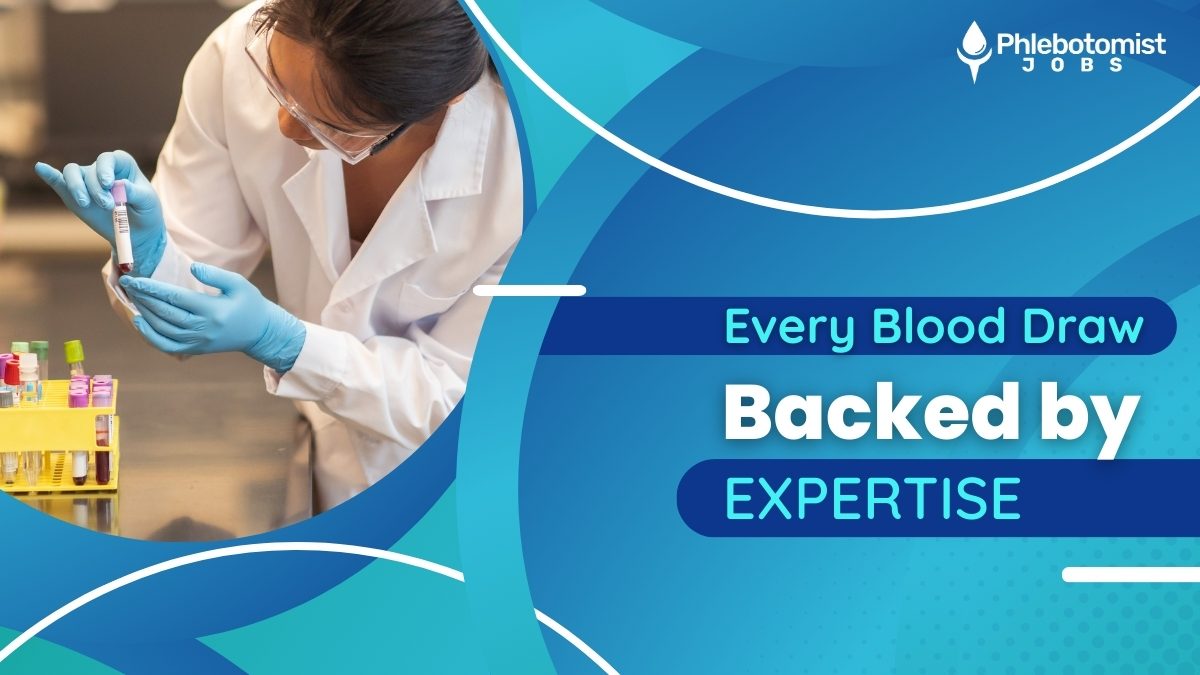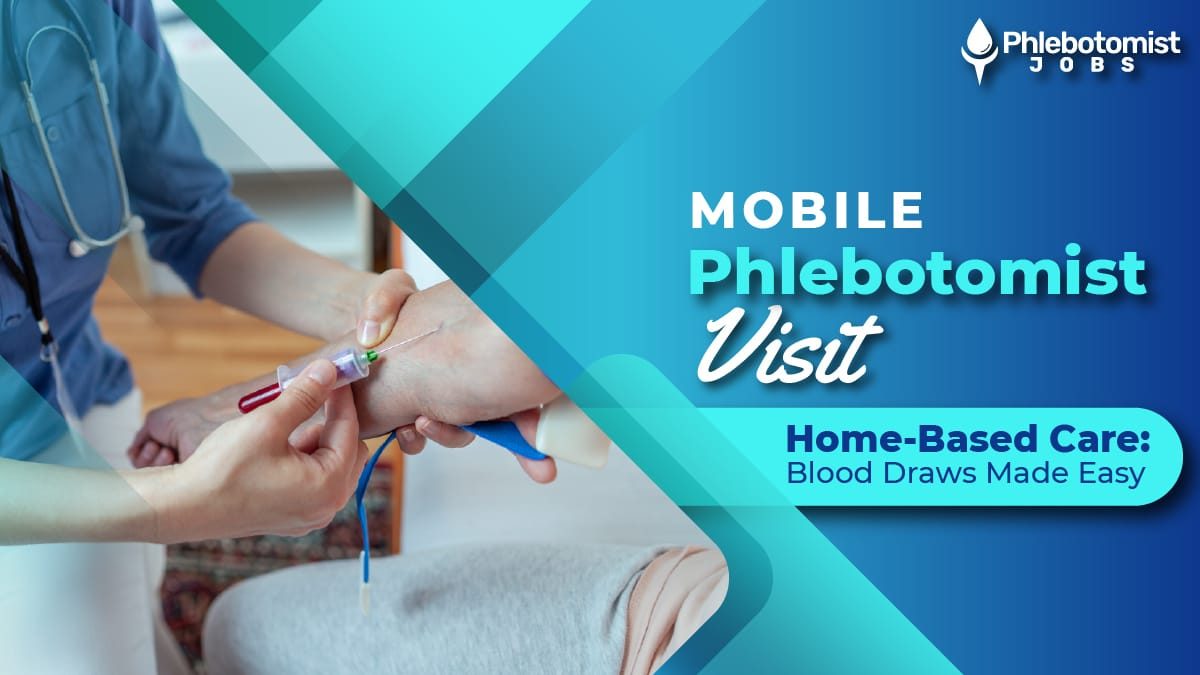Table of contents ▸
Accessibility and convenience in health care are now priorities for most patients and providers everywhere in today’s ever-changing world. The mobile phlebotomist is, therefore, such an emerging profession that plays a big role in improving patient access to care. These healthcare providers travel to the homes, workplaces, or care facilities of patients rather than requiring them to come to the facility to draw blood for laboratory testing. As they visit them, they ensure that patients with mobility difficulties, chronic disorders, or time constraints are subject to necessary laboratory testing.
Mobile phlebotomy is making diagnostic services easy to access, and it’s also revolutionizing health mobility. This article examines the growth of mobile phlebotomists, their impact on patient care, and what exactly is causing high demand for this profession.
The Role of Mobile Phlebotomists
What does a Mobile Phlebotomist do?
A mobile phlebotomist is a trained professional blood collector who draws blood and other specimens from patients in places that do not qualify as conventional clinical sites. Unlike traditional phlebotomists, they go to houses, assisted-living centers, corporate offices, or rural clinics to collect blood samples.
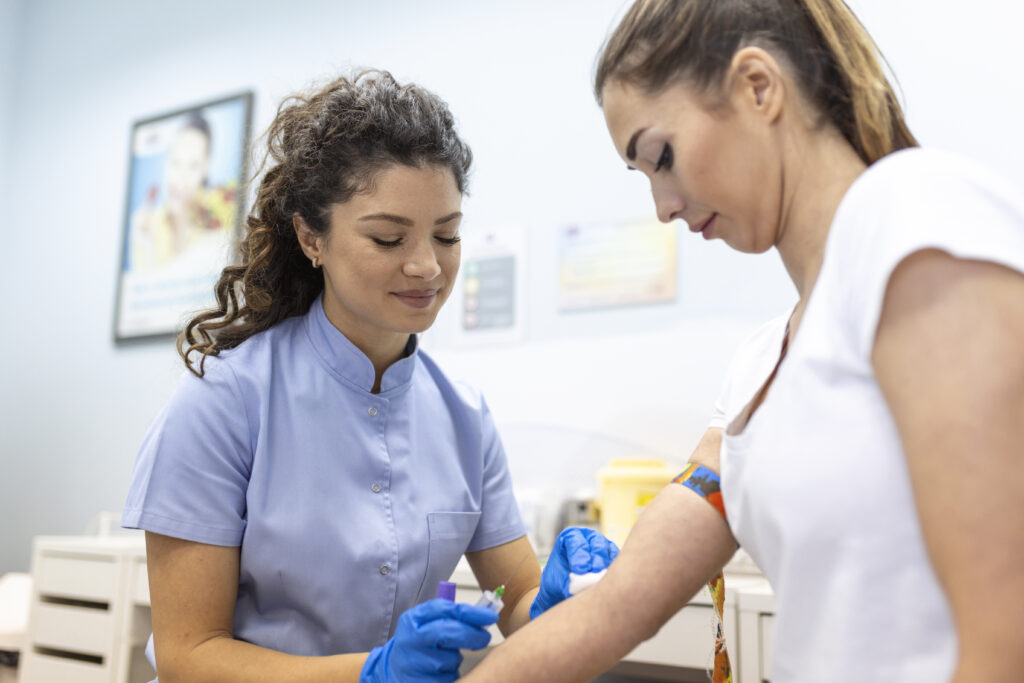
Responsibilities of a Mobile Phlebotomist
- Collecting and handling blood samples
- Ensuring patient comfort and safety
- Labelling and transporting specimens to laboratories
- Maintaining accurate records and compliance with the healthcare regulations
By providing these services in varied settings, mobile phlebotomists may serve as conduits tying patients to vital medical tests.
The Growing Demand for Mobile Phlebotomy Services
There are many issues that have caused the increased demand for mobile phlebotomists, including:
- Aging population : Elderly people are often not very mobile due to incapacity or ill health and thus cannot visit the laboratory or clinic.
- Chronic diseases : Frequent blood tests are required for managing such diseases as diabetes, heart disease, and cancer. Long hospital visits make it difficult for patients to come in frequently.
- Growth of Home Health Care : Since home healthcare is gaining popularity, it would be a logical extension of patient-centred medical services to add mobile phlebotomy.
- Workplace Well-being Programs : Many companies invest in corporate wellness initiatives and need phlebotomists on-site for employee health screenings.
How Mobile Phlebotomy Expands Patient Care Access
Reaching the Unreachable
Mobile phlebotomy has made great strides in assisting patients who may have limited access to healthcare services. Rural towns often create an additional burden on disabled individuals or elderly patients who have a hard time reaching medical facilities for diagnostic testing. Mobile phlebotomy takes the service to them, getting the patients the vital medical assessments they require.
Reducing Access Barriers to Healthcare
Traditional healthcare settings may be intimidating or just plain inconvenient to some patients. Mobile phlebotomy reduces these barriers by:
- Avoiding transportation difficulties associated with those who do not have a reliable mode of transport or who live in remote areas
- Offering flexible scheduling, including evenings and weekends
- Administering patient care in a more personal and intimate setting, allowing for a more pleasant experience and less patient anxiety
Improving Timeliness of Diagnosis
Delays in diagnostic testing led to adverse health outcomes. Mobile phlebotomy enhances this process by:
- Faster collection and processing of samples
- Shorter appointment wait times compared to clinics operating in traditional settings
- Permitting quicker detection of disease and early intervention from medical professionals
Making Patients Comfortable and Verifying Experiences
Many people are anxious about going to hospitals or clinics. Having blood drawn in the ambiance of their choice home or an office of stress for a relaxed patient experience. This is especially helpful for medical phobic, kids, or those with special needs.
The Technology Behind Mobile Phlebotomy
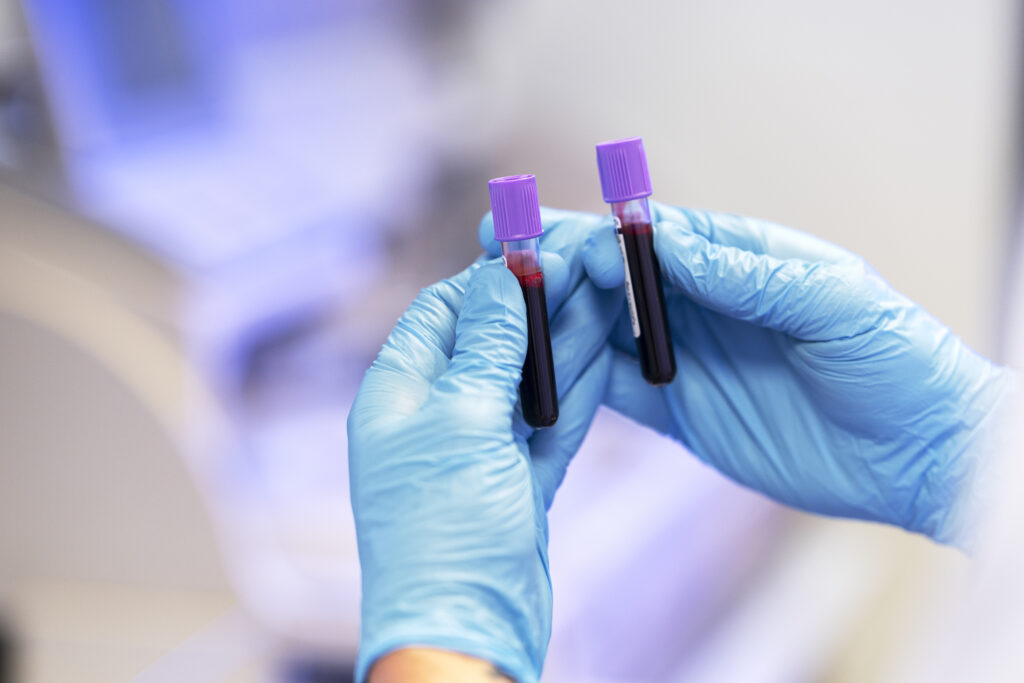
Digital Record-Keeping and Remote Access
Mobile phlebotomists use electronic health records (EHRs) to streamline patient information and improve data accuracy. Some of the advantages of these types of digital systems include:
- Reduction in paperwork and administrative error
- Seamless communication between the respective parties, healthcare providers, and laboratory
- Real-time tracking of patient history and test results
Portable Diagnostic Equipment
With the advancement in technology, mobile phlebotomy work would be able to operate on portable diagnostic materials, promoting efficiency and accuracy. The handheld vein visualizer, mobile centrifuge, and barcode scanner would all allow the practitioner to work more accurately and faster.
Telemedicine Integration
With the expansion of telehealth, mobile phlebotomy goes hand-in-hand with virtual healthcare visits. In this way, patients will have phlebotomists coming to their houses for sample collection while seeing doctors through a telemedicine platform, ensuring the fast availability of lab results for diagnosis and treatment planning.
Mobile Phlebotomy Career Opportunities
What You Need to Know to Be Trained and Certified
To be a mobile phlebotomist, it is generally required to possess:
- Phlebotomy certification awarded by an accredited institution
- Some hands-on experience through clinical training
- A driving license and a proper car (in cases of functions based on traveling)
Organizations providing phlebotomy certifications include:
- National Healthcare Association (NHA)
- American Society for Clinical Pathology (ASCP)
- American Medical Technologists (AMT)
Mobile Phlebotomist Employment Settings
Mobile phlebotomists could work on:
- Home healthcare services
- Assisted living and nursing facilities
- Corporate wellness programs
- Community health initiatives
- Laboratory partnerships
Having prospects for job security and advancements, career growth in mobile phlebotomy is becoming promising, owing to the demand factor in the healthcare industry.
Future of Mobile Phlebotomy
More On-Demand Health Services to Come In
As healthcare is becoming more patient-centric, it’s predicted that on-demand and concierge-based services will grow. Patients nowadays want personalized in-home medical services; therefore, it is very likely that mobile phlebotomy services will be a cornerstone of tomorrow’s healthcare structure.
Greater Telehealth Coalescence
Telehealth and mobile phlebotomy convergence will provide a robust diagnostic scale with the privilege of remote consultations and instant lab results. This will significantly benefit rural and underserved regions or communities where access to healthcare is limited.
Greater Demand for Specialized Phlebotomy Services
Therefore, geriatric care, pediatric phlebotomy, and chronic disease management are going to be specialized fields with a pressing need for mobile phlebotomist practitioners. Training programs may change or provide advanced skills for these special needs populations.
Conclusion
Mobile phlebotomy is changing the face of access to diagnostic services by providing flexible, convenient, and equitable healthcare. Mobile phlebotomists are instrumental in improving access to patient care and improving health outcomes by bringing critical lab tests to people’s homes, places of work, and underprivileged communities.
With the advancement of telemedicine, the demand for mobile phlebotomy services will continue to grow. It is a secure career for job placement and an opportunity to contribute to meaningful work in the healthcare industry.
Follow us on Social Media: LinkedIn | Facebook | Twitter | Instagram

